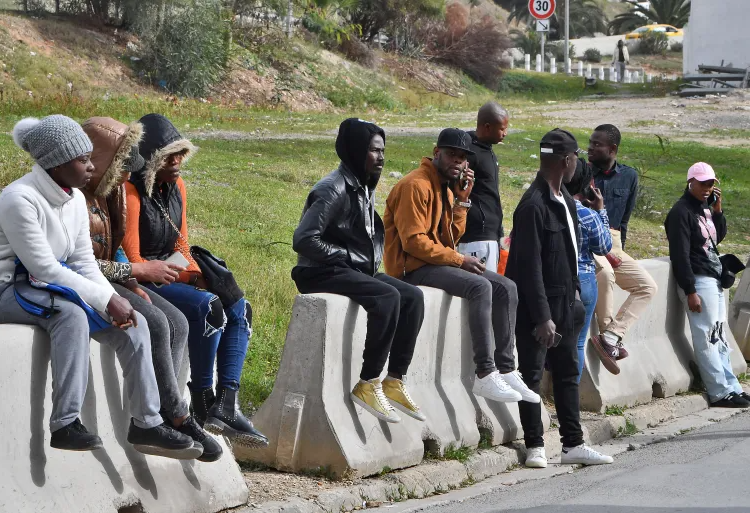For most people in tune with world news from the African perspective, Tunisia, a North African country, is presently in the media space for the very wrong reasons. Its President, Kais Saied, recently embarked on a xenophobic journey that has exposed his racist tendencies. This is the latest of his controversies. Before now in 2021, he had grabbed far-reaching powers, dissolving the country’s democratically elected parliament, detained critics including journalists, opposition politicians and civil society activists.
We recall that Tunisia was in the forefront of the Arab Spring believed to be a movement to restore democracy in that part of the world. The fear, so prevalent in that country, is that President Saied is tending towards dictatorship, a development that will, sadly, turn the hands of the clock in the democratic timing of that nation.
The president, in his perceptible weird mind set, claimed that the hordes of sub- Saharan migrants coming into Tunisia are causing crime and pose a demographic threat to the North African country so that it becomes more African and less Arab.
He said that the “undeclared goal of the successive waves of illegal immigration is to consider Tunisia a purely African country that has no affiliation to the Arab and Islamic nations.” To drive home his unfortunate position, he ordered security forces in that country to crackdown on those he declared as illegal and undocumented migrants most of whom are blacks from Cote d’Ivoire, Senegal, Mali, Guinea and elsewhere. Most of these migrants are beginning to take refuge in their countries’ embassies while others are being evacuated.
Already, protesters, most of whom are Tunisians, defying the racist rants of their leader, are taking to the streets to denounce racism just as they expressed solidarity towards migrants. As they marched through the capital city, Tunis, they formed part of the demonstration staged by that country’s journalists’ union and other nongovernmental organisations to resist the xenophobic tendencies and power-grabbing propensities of their president.
African Union, shocked by the comments of President Kais Saied, said that Tunisian authorities, targeting fellow Africans, go against the letter and spirit of the organization and its founding principles. The Union said that Tunisia was under obligation to treat all migrants with dignity wherever they come from. It further urged the President to refrain from what it described as racialized hate speech that could bring people to harm and instead prioritise their safety and human rights. It followed up on its condemnation of the policies of Saied by canceling a conference on ‘fighting illicit financial flows in Africa’ it planned to hold in that country later this month.
Reacting to this despicable policy thrust of the Tunisian President, some United Nations’ experts, alarmed by what they described as brutal racism, expressed deep concern about the safety, dignity, physical integrity and living conditions of the migrants. The experts averred that the expulsion of these migrants and asylum seekers, as well as Tunisia’s continued denial of their re-entry, may violate her obligations under international law.
It is important to recall, in case the Tunisian authorities have become afflicted by temporary amnesia, that the International Convention on the Elimination of all forms of Racial Discrimination requires that governments protect everyone from racialized violence or bodily harm whether inflicted by government officials, an individual or institution.
Historically, the presence of black community in North Africa, in general, is traceable to the slave trade. But slavery was abolished in Tunisia in 1846. However, black Tunisian community is estimated to be between 10 and 15 per cent of the total population of the country. Curiously, in our view, this sizeable chunk of the population is alleged to be wholly absent from public life and employment, including government positions and other senior roles as they still face huge discrimination and maginalisation.
So, what this latest development entails, in our opinion, is that the target is not migrants, legal or illegal, documented or undocumented. It is a policy direction instigated by Saied against blacks in general whom he considers and perceives as inferior to his Arabic/Islamic race.
It is, also, pertinent to stress that racism in Tunisia and, indeed, in other parts of North Africa, is not new. According to Human Rights Watch in that country, racism in Tunisia was, up until now, a subdued phenomenon. What is happening now is that it is receiving official endorsement as President Saied’s statements have inflamed passion and emboldened obscure racists to act openly.
It must be noted that people who migrate to other countries do so for a number of reasons mostly economic, educational and political. All of them legitimate as they are provided for in international treaties and conventions. In the opinion of this newspaper, the international community must go beyond the rhetoric of condemnations and apply the provisions of relevant statutes against nations that maltreat migrants. Not just Tunisia.
We have had cause to stress on this page that migrants, of whatever hue, are not all parasites. They make their contributions, some very significant, that aid the development of there host countries. To that extent, therefore, they must be accorded the respect and dignity they deserve, in Tunisia or anywhere else they find themselves.





